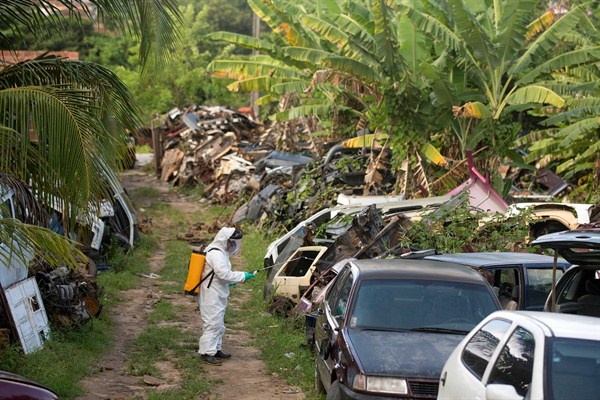The Zika virus is not new, but its spread and possible connections to microcephaly—a birth defect in which a baby has an abnormally small head—have caught the international community’s attention. Zika is not the same kind of challenge as Ebola, but it will require some similar measure of international cooperation to adequately address. While the World Health Organization’s declaration of a Public Health Emergency of International Concern on Feb. 1 is a good start, there are still fundamental questions that could complicate the international community’s response.
Why is Zika spreading now? The virus, which emerged out of its relative geographic isolation in 2007, has been present in East Africa since the late 1940s and South Asia since the 1970s, but it did not make the journey to Micronesia for roughly 40 years. From there, it took less than a decade to spread throughout French Polynesia, Brazil and large swaths of the Americas. Anecdotal evidence suggests that the first cases of the Zika virus showed up in Brazil shortly after the country hosted the 2014 World Cup, meaning it may have inadvertently been brought to the Americas by an infected traveler from French Polynesia. Once the virus appeared in a virgin population, it spread easily because few people had pre-existing immunities to it.
If the spread of Zika is travel-related, this raises very important questions, because Brazil is hosting the Summer Olympics in August. The games will bring millions of tourists to Brazil—many of whom likely have no prior exposure to Zika and could take it back to their home countries. On Friday, the Centers for Disease Control and Prevention issued new travel advice, advising pregnant women to “consider not going to the Olympics.”

